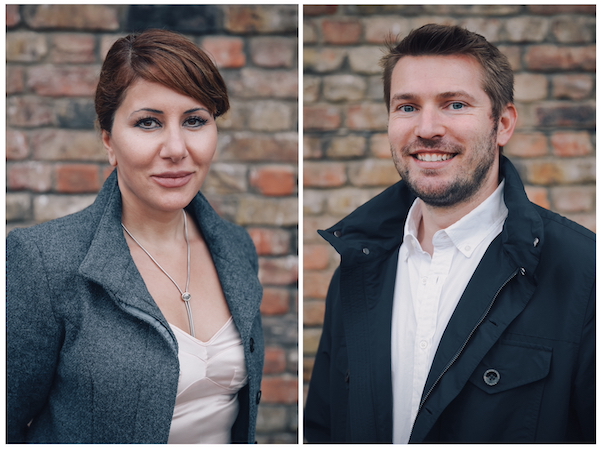
▲圖片標題(來源:Watr / Watr founders)
With COP26 negotiations in full throw this week, the climate is probably the highest up the global agenda it’s ever been. And as the world slowly emerges from the global pandemic, more people are talking about re-writing the rules of trade, not just to unblock the clear inefficiencies made manifest by the Evergreen Suez-blocking debacle, but also to help the planet escape the disaster of an increasingly warming world.
A large part of the solutions could lie in how commodities are traded. What would happen, for instance, if you created digital contracts for trade, but included a sort of “nutrition label” for every commodity that’s been bought and sold, so you can track the provenance? We already have these labels for the food we eat. What if every commodity bought and sold had a label for CO2 emissions, female participation, data on whether is was involved in modern slavery, water pollution, recycled content… the list goes on. Creating such an ecosystem sounds almost impossible, but blockchain-based smart contracts might just hold the answer.
The task is enormous. One container requires typically 50 pages of documents, involves at least 30 people and 15 other axes’. A Smart Contract and tokenized approach would speed things up immeasurably and potentially unblock the stuttering global trade system.
If a contract didn’t meet requirements on, say, sustainability, the commodity trader simply wouldn’t buy it. If it meets additional ones, it might be bought at a premium, creating live price signals to producers upstream that said: “This is one”.
A “nutrition label” on commodities would also de-politicize the choices. Operations like Fairtrade are centralized, not de-centralized. Allowing commodities traders to trade on whatever their company’s precepts were — be it be human rights or fair trade or CO2 emissions — would create a more level playing field. And consumers would also then be able to see much more of the provenance of the things they buy.
There have been some early attempts to apply blockchain technologies to commodities trading. Covantis for agriculture, MineHub for metals, to name two.
Watr Foundation is a new Swiss-registered foundation launching today. Its idea is to use its Watr Protocol to digitize supply chains, increase transparency around sustainability and encourage and sponsor the development of new business models and dApps that achieve this.
轉貼自: Tech Crunch
若喜歡本文,請關注我們的臉書 Please Like our Facebook Page: Big Data In Finance


留下你的回應
以訪客張貼回應